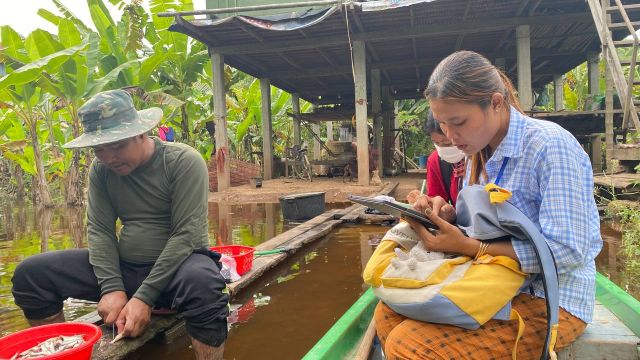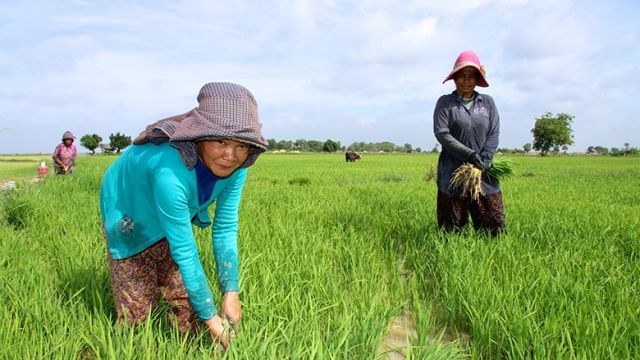Cambodia
Overview
When the 50x2030 Initiative began working with Cambodia in 2019, the nation identified the opportunity to increase capacity for data use. Cambodia was facing multiple challenges, all of which were reflected in their low score on the World Bank’s Statistical Performance Indicators. In particular, a severe lack of data availability and utility combined with limited infrastructure below international standards prevented stakeholders from making data-based decisions: (1) The nation relied mostly on a 2013 Agricultural Census and one socio-economic survey conducted annually, leaving them unable to produce data for some key SDG indicators; (2) their access to the existing data was minimal due to informal dissemination processes and capacities; and (3) additional constraints included limited utility and trust, as communication between government agencies created challenges for data use. These roadblocks existed despite a strong demand for data. Cambodian stakeholders recognized the value of using data to inform their work, contributing to an enabling environment to allow for improvements to Cambodia’s agricultural data ecosystem.
Major Milestones
The 50x2030 Initiative has provided support to the Royal Government of Cambodia through the Ministry of Agriculture, Forestry, and Fisheries (MAFF) and the National Institute of Statistics (NIS) to improve data availability and quality by assisting the NIS in conducting agricultural surveys in 2020 and 2021. Several trainings were offered in country to support stakeholders in analyzing data and extracting findings. Additionally, multiple Data Use Research Grants were awarded to further evaluate relevant topics and provide policy recommendations.
The 50x2030 Initiative has also provided support for surveys conducted in 2021, 2022, 2023 and 2024 and the partnership between MAFF and 50x2030 has shown promise in increasing a culture of data use for policy development, thereby offering tremendous potential to ultimately contribute to sustainable development in Cambodia in the coming years. Cambodia graduated from the 50x2030 Initiative in late 2025.
Available Country Data
Microdata:
Cambodia Agricultural Survey 2023
Cambodia Agricultural Survey 2022
Cambodia Agricultural Survey 2021
Cambodia Agricultural Survey 2020
Cambodia Inter-Censual Agricultural Survey 2019
Survey Report:
Cambodia Agricultural Survey 2023
Cambodia Agricultural Survey 2021
Cambodia Agricultural Survey 2020
Cambodia Inter-Censual Agricultural Survey 2019
Statistical Brief:
Cambodia Agricultural Survey 2021
Cambodia Agricultural Survey 2020
Cambodia Inter-Censual Agricultural Survey 2019
Thematic Map:
Cambodia Agricultural Survey 2023
50x2030 Research Grant Policy Briefs and Papers
Vatana Chea et al, "Impact of Farmer Associations on Sales and Crop Diversification"
Channary Khun, "Productivity and Market Participation: Cambodian Rice Farmers"


